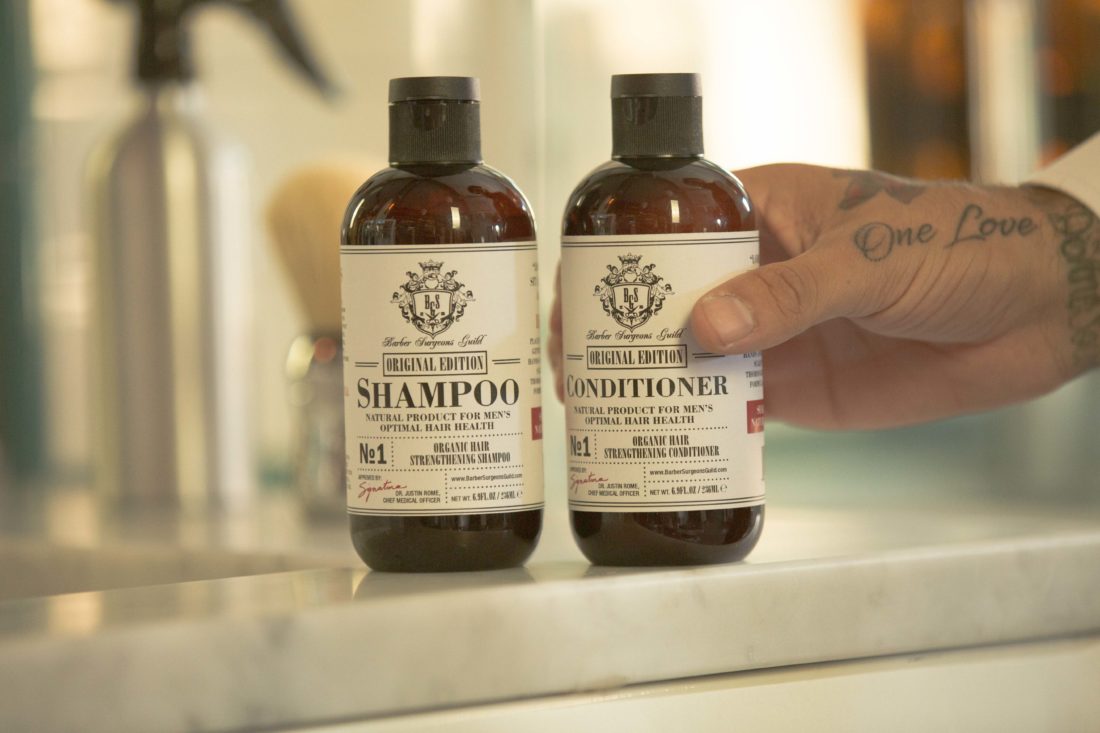
How Often Should You Be Using Your Conditioner
Until I grew out my hair a year ago, conditioner was a foreign concept to me – it was just a thing I sometimes accidentally bought instead of shampoo. Then, my newly long hair started feeling dry whenever I shampooed, and I discovered the beauty of conditioner. Still, how often to use conditioner can be a nebulous issue. That’s why I had a chat with BSG’s Grooming Salon Manager, Frances Fernandez, to get right to the bottom of it.
CONDITIONER SELECTION
We have a whole article on choosing a conditioner right here, but the short version is to pick a conditioner that’s right for your hair, and to look out for quality ingredients. Different types of hair require different conditioners. For example, if your hair is dry and brittle, using a moisturizing conditioner like BSG’s own HCO1 conditioner is a good idea. Damage repair conditioners should be used to help with breakage. Beyond that, there are a variety of conditioners formulated to add volume, to create a certain texture, or to achieve a specific style.
When it comes to ingredients, you want to look out for sulfates and paraben, used in some conditioners. These can help obtain a desired style in the short term, but damage the hair in the long run. Some conditioners even contain the same ingredients as floor wax! The idea is to soften the hair by filling in the cuticle, which in turns makes it harder for the hair to absorb moisture.
You can even skip shampoo and just use conditioner if you notice that your hair is dry or if it shows signs of breakage.
FREQUENCY OF APPLICATION
This is pretty simple, it turns out: use conditioner whenever you use shampoo. Essentially, what shampoo does is clean your hair by removing anything greasy. That includes dirt and grime, but also the sebum produced by your scalp to keep your hair healthy. That’s where conditioner comes in – it adds that much-needed moisture back to your scalp and hair. For that reason, you should use conditioner even if you have short hair. For long hair, conditioner is a must. “You can even skip shampoo and just use conditioner if you notice that your hair is dry or if it shows signs of breakage,” Frances says.
APPLICATION
Whereas shampooing starts at the scalp, conditioning starts at the ends of your hair. If you have long hair, start by applying conditioner to the ends (wring out any excess moisture beforehand), then slowly work your way along the hair and to the roots. You can take this opportunity to give yourself a scalp massage, which stimulates circulation and keeps your scalp and hair healthy.
The scalp needs less conditioner because it is typically the best-hydrated area of your hair, thanks your body’s natural oils. However, excessive amounts of oil can suffocate the follicle, which is one reason people experience hair loss.
“It is always best to consult with a professional for your concerns about your hair and scalp,” Frances tells us. “At BSG, our barbers are trained to notice the signs of any impending hair loss and can give suggestions on how to manage or avoid it.”
STYLING
On top of giving you the moisture your hair needs, conditioner can be used for some of your styling desires. Conditioning is a great way to reduce frizz and volume. The curly haired among you can apply conditioner and let it air dry to get healthy, natural-looking curls. Those with straight or wavy hair, it will soften the hair and help maintain it in place.
If your hair is over-moisturized, using conditioner for styling is not recommended as the oil can clog up the pores (just like any styling product).
BSG CONDITIONER BENEFITS
You might wonder what makes BSG conditioner special. Like all BSG products, it is designed with the health of your hair in mind. Brands like Tressemé and Aussie, on the other hand, are formulated to make your hair feel a certain way rather than preserve the integrity of your hair.
“The cool thing about BSG conditioner,” says Frances, “is that it is formulated by Dr Rome to strengthen hair, maintain the health of the scalp, and promote the overall maintenance of hair health.”
Victor Allard is a writer, teacher, and proud owner of a well-trimmed beard. When he’s not writing about grooming and wellbeing, he likes to play any instrument he can get his hands on.


